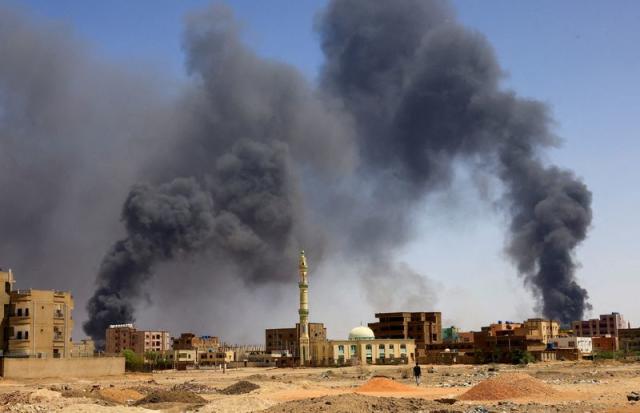Sudan’s army launched its most significant operation to reclaim territory in the capital since the onset of its 17-month war with the Rapid Support Forces (RSF) on Thursday. The offensive, marked by heavy artillery and air strikes, comes as Army Commander General Abdel Fattah al-Burhan prepares to address the United Nations General Assembly in New York.

Witnesses reported intense bombardments and clashes as army troops attempted to cross bridges spanning the Nile, connecting the tri-city capital complex of Khartoum, Omdurman, and Bahri. Ahmed Abdalla, a 48-year-old resident, told Reuters by phone, “The army is carrying out heavy artillery strikes and air strikes on Halfaya and Shambat,” referring to areas in Bahri near the river.
Army sources claimed their forces had crossed bridges into Khartoum and Bahri, while the RSF countered that it had repelled the army’s attempts to cross two bridges into Khartoum. These claims could not be independently verified.
The army, which lost control of most of the capital early in the conflict, has largely relied on artillery and airstrikes, struggling to dislodge the more mobile RSF ground forces embedded throughout the capital. While the army regained some ground in Omdurman earlier this year, its progress has been limited.

This offensive occurs against the backdrop of a deteriorating humanitarian crisis, with over 10 million people displaced and parts of the country facing extreme hunger or famine. Diplomatic efforts, including recent U.S.-backed talks in Switzerland, have faltered with the army’s refusal to participate.
Concurrently, fighting has intensified in al-Fashir, the capital of North Darfur state, as the RSF attempts to advance against the army and allied former rebel groups. The United Nations human rights office has documented summary executions, sexual violence, and abductions in al-Fashir, warning of the risk of ethnically targeted violations if the city falls to the RSF.
As the conflict continues to escalate, international concern grows over the humanitarian situation and the potential for further regional destabilization. The UN Security Council and Secretary-General have demanded an end to the siege of al-Fashir, home to over 1.8 million residents and displaced persons.
The war, which began in April 2023, stems from tensions between the RSF and the army over power-sharing arrangements following the 2021 coup that ousted the transitional government established after the fall of long-time autocrat Omar al-Bashir in 2019.


